Key Figures
Measuring our commitment to Diversity, Equity & Inclusion
Gender Equity
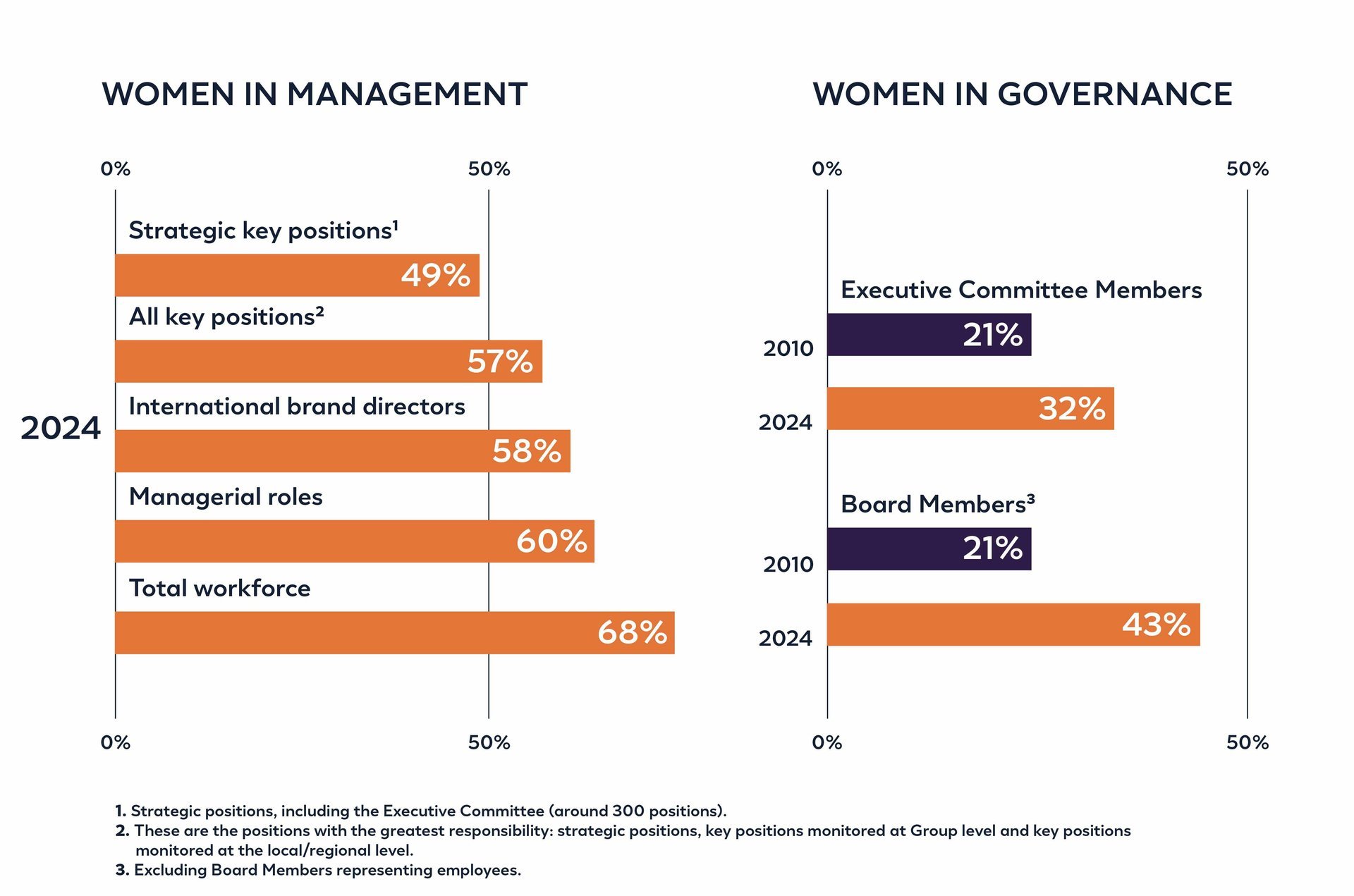

Gender pay gap analysis in France
Since 2007, L'Oréal has called upon the Economix Institute that groups together renowned public research entities (INED, CNRS and Université Paris Nanterre), to conduct an annual gender pay gap analysis in France. The analysis has focused on median, mean and adjusted mean pay gap between men and women.
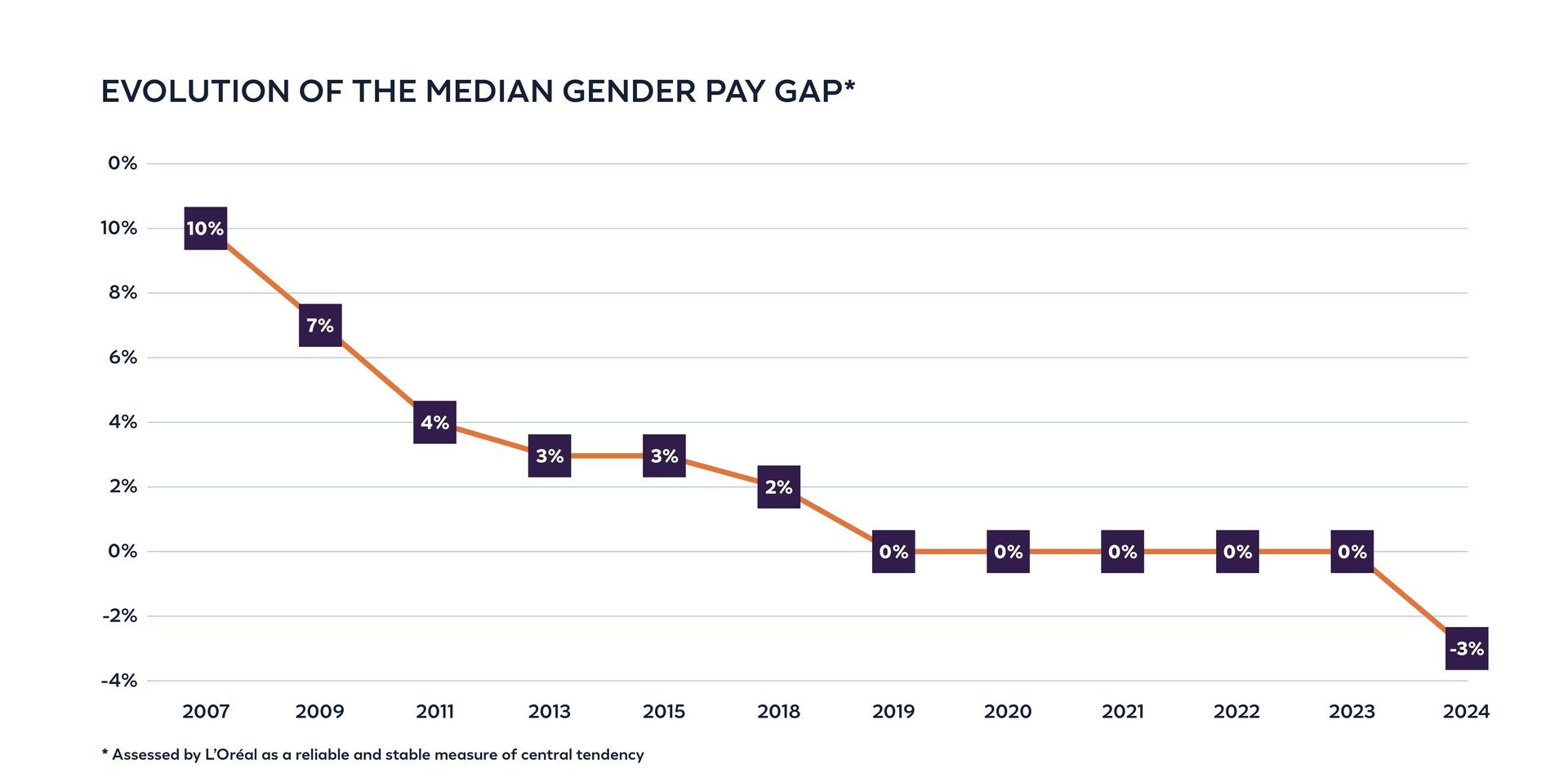
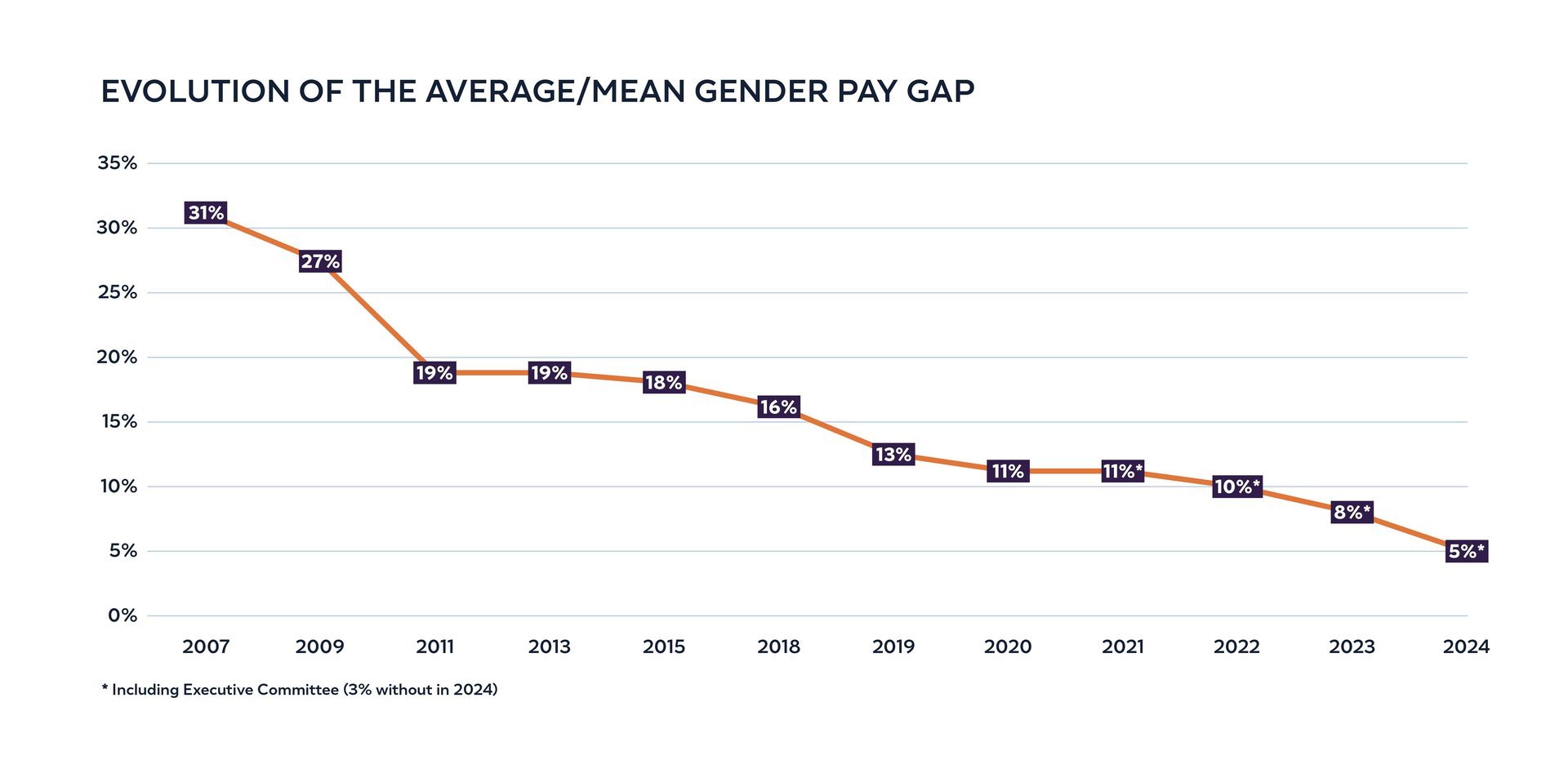
Analysis of average/mean gender pay gap
The “average” or “mean” pay gap for 2024 was 5% in favour of men (14% for top executives, 5% for senior management, 5% for middle management, 2% for professional and -4% for support).
The “adjusted” average pay gap, once structural effects are taken into account (all things equal), is reduced to 1.8%. The structural effects considered are, for example, level of responsibility, age and seniority.
Parental Leave
14 weeks
minimum of paid leave for mothers / primary parents
6 weeks
minimum of paid leave for other new parent (fathers and co-parents)

Gender Equity Certifications
(36 countries)
For several years L'Oréal has put in place an ambitious policy on gender equity. In order to measure and assess its practices and policies, L’Oréal relies on two independant standards: Equity, Diversity and Gender Equality Certification (EDGE) and Gender Equality European & International Standard (GEEIS). In 2025, 36 pays have received the EDGE or GEEIS certification, which represents more than 60 % of the Group’s workforce.
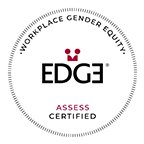
Australia, Brazil, Canada, USA, India, Russia, Switzerland |
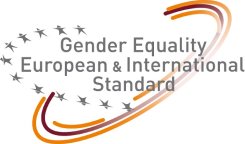
Austria, Belgium, Bulgaria, Croatia, Czech Republic, Denmark, Egypt, Estonia, Finland, France, Germany, Hungary, Ireland, Italy, Latvia, Lebanon, Lithuania, Netherlands, Norway, Poland, Portugal, Romania, Saudi Arabia, Slovakia, Slovenia, Spain, Sweden, United Arab Emirates, UK |
Disability
L'Oréal employees worldwide with disabilities
2,005
Total L’Oréal employees with disabilities* as at 31st December 2024
(*Direct employment)
Focus on France - direct employment of people with disabilities
in 2010
in 2024
Nationality & Multicultural Origins
166
nationalities represented amongst our employees
Global figures regarding the Multicultural Origins of our employees are not available. Aligned with UN recommendations, each country investigating ethnic characteristics of its population must carefully define terms such as “race”, “origin” or “tribe” which may have differing connotations. By nature of the topic, categories and their definitions will vary widely from country to country; therefore no internationally accepted criteria are possible.
Age & Generations
38
Average age of our employees
16%
of our employees aged 50 years old and over
25,000
professional opportunities for people under 30 in 2024
Inclusive Sourcing with suppliers
(2024 Data)
L’Oréal’s global Inclusive Sourcing Programme, launched in 2010, harnesses the Group’s purchasing power to promote social inclusion by allocating part of L’Oréal’s total purchasing volume to committed suppliers that give access to employment and a sustainable income to people from socio-economically vulnerable communities who are often excluded from the labour market.
This programme enables L’Oréal to promote its commitments under the four pillars of the Group’s diversity, equity and inclusion policy within our supplier network
Projects linked to Women's economic empowerment
beneficiaries of projects specifically related to the emancipation of women
of beneficiaries of overall Inclusive Sourcing program are women
encompassing 49 local initiatives in
17 countries
initiatives on Women Owned Businesses
LGBTQIA+ inclusion with our suppliers
people employed full-time via suppliers who are certified LGBTQIA+-owned companies in the USA
Employment of people with disabilities
people with disabilities working for our suppliers
over the last 4 years
Worldwide encompassing
202 initiatives
In 40 countries
Inclusion of people of all ages
people hired over the age of 50 working for our suppliers
Worldwide encompassing 241 initiatives in 39 countries
Including people of all socio-economic and multicultural origins
full time jobs supported in classified rural and urban socio-economic vulnerable zones (such as ZRR and QPV in France, Distressed Zones in the USA, aspirational districts in India)
full time jobs supported for minorities through equal opportunity practices and 15 initiatives on Minority Owned Businesses.
full time jobs supported for refugees

Previous Publications
Diversity, Equity & Inclusion at L’Oréal Groupe – 2023 Report